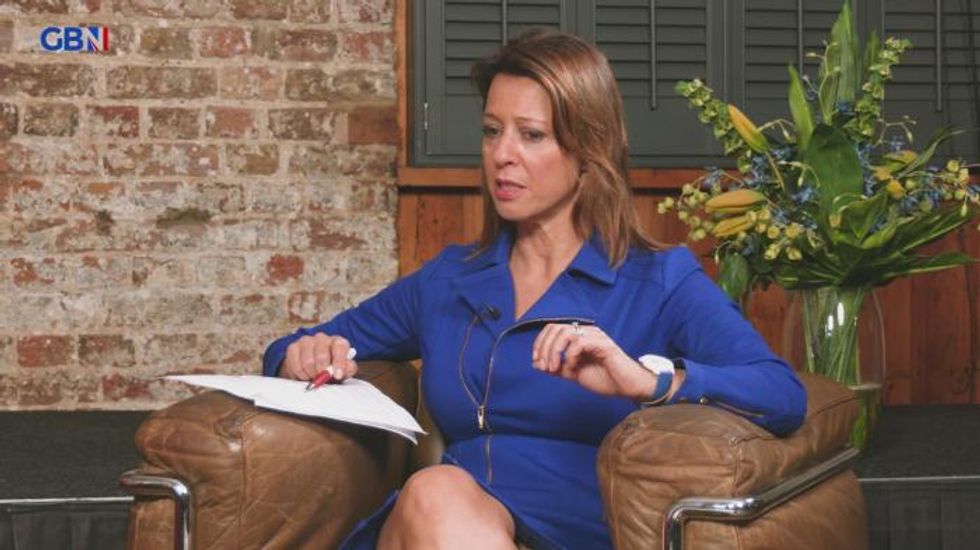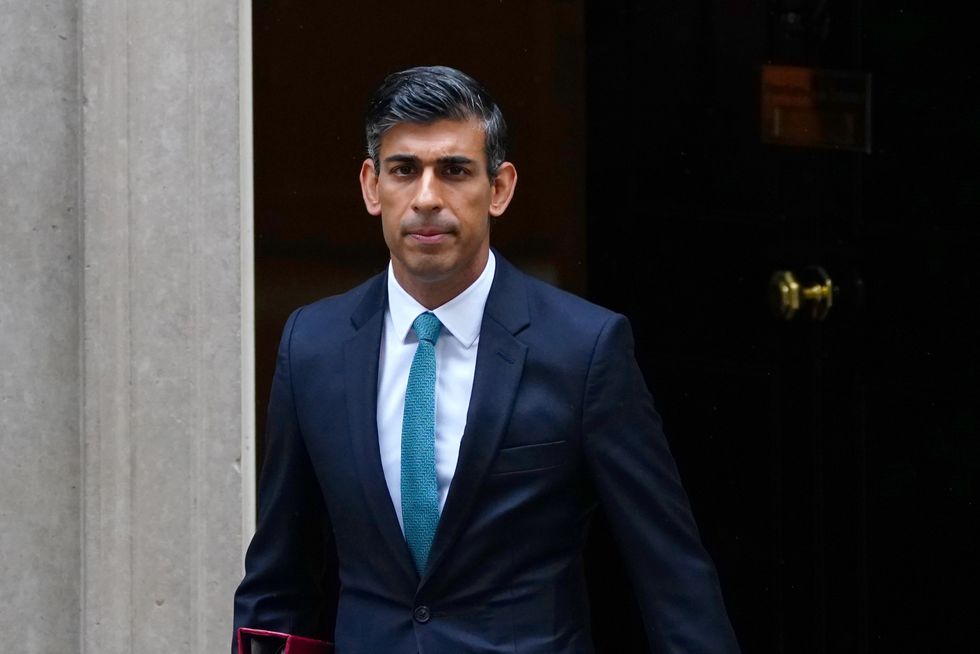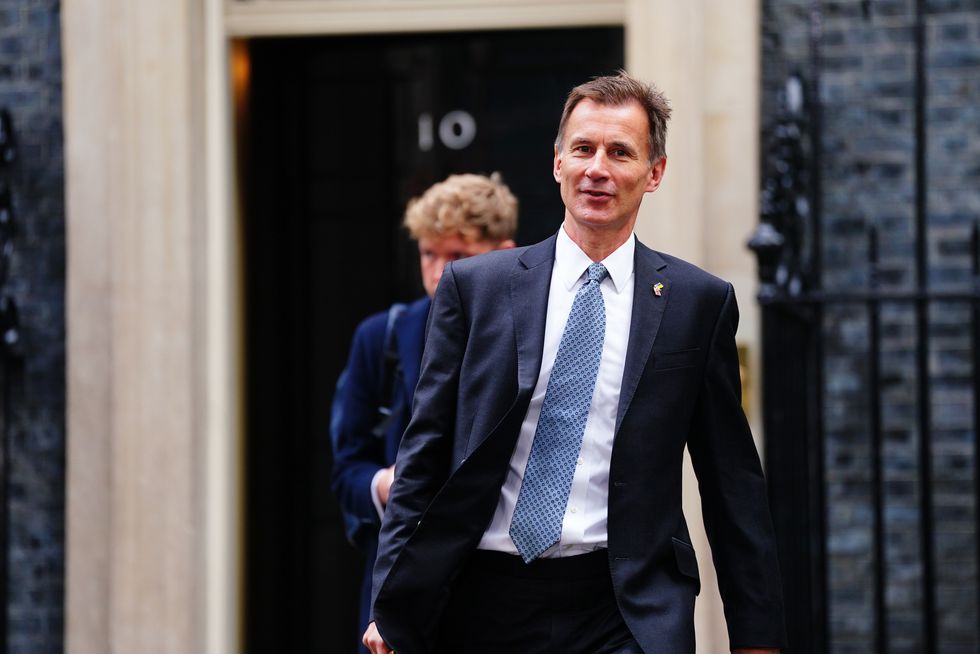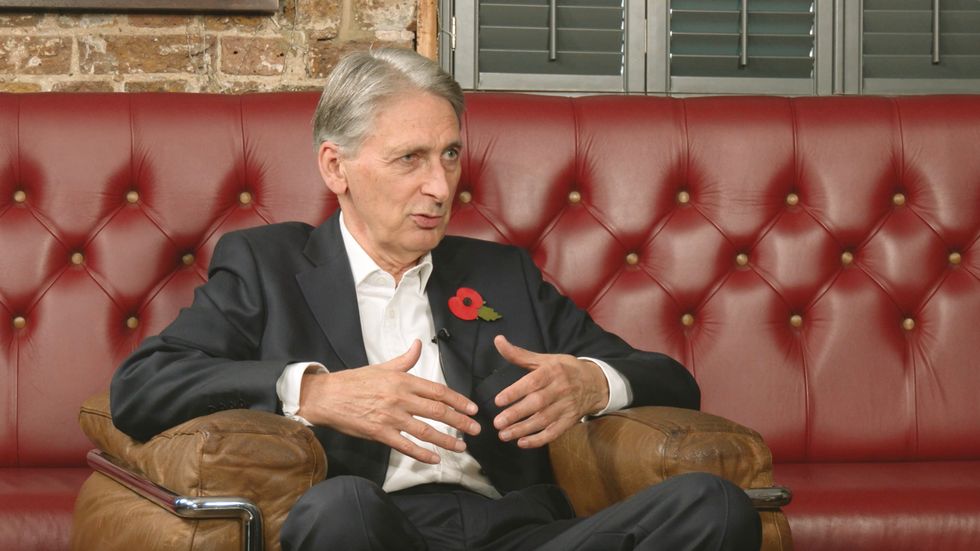Don't Miss
Most Read
Trending on GB News
Philip Hammond has shared a stark warning, claiming that the government's triple lock on state pensions is "unsustainable" during an exclusive interview with GB News.
The former Conservative chancellor sat down with Gloria De Piero to share a number of his predictions for the future of the Conservative Party in a wide-ranging interview that will air tomorrow.
Rishi Sunak is considering raising state pensions and benefits in line with inflation in a move that would likely usher in deeper public spending cuts elsewhere and higher tax rises.
Rishi Sunak is considering raising state pensions and benefits in line with inflation
PA
The move could cost a combined £11 billion next year but would prevent a rebellion from some Tory MPs and avert at least some criticism of the challenging decisions being unfair.
Victoria Jones
Rishi Sunak and Chancellor Jeremy Hunt are considering imposing up to £60 billion in tax rises and spending cuts in the autumn budget on November 17.
Treasury sources insisted no decisions have been taken, but did not deny a report in the Times stating they would avoid real-terms cuts on pensions and benefits.
The move could cost a combined £11 billion next year but would prevent a rebellion from some Tory MPs and avert at least some criticism of the challenging decisions being unfair.
Members of Mr Sunak’s Cabinet including Michael Gove have previously warned against going back on the manifesto commitment of maintaining the pensions “triple lock” as inflation soars past 10%.
But with Mr Hunt considering up to £35 billion of “fiscal tightening”, any extra spending would leave more severe savings and higher tax hikes required elsewhere.
The former Conservative chancellor sat down with Gloria De Piero to share a number of his predictions for the future of the Conservative Party in a wide-ranging interview that will air tomorrow.
GB News
Despite this, Mr. Hammond predicts the Chancellor will stick with the manifesto pledge, saying: “I expect that Jeremy Hunt's judgement in this statement will be that we have to go ahead with both maintaining the triple lock, and upgrading in line with inflation because of the huge pressure that people on low incomes are under from rising prices and high inflation.
Questioning the commitment's longevity, Mr Hammond said there are "two issues" in the longer run: "One is around pensions. Is it really right that we should always up the rate by the highest of wages / prices or by 2 per cent?
“I think that is quite difficult to justify, and not all pensioners are poor. So I think there is a case for looking again at the way we treat pensioners, and possibly for distinguishing the poorest pensioners from the great body of pensioners, some of whom are really quite comfortably off.
"And on benefits generally I think the challenge is that in a period when the pressure is on to keep inflation down, it means holding wages down, often to a level of increase below the rate of inflation.
"You do have to ask yourself, whether it is really fair, and whether it's sustainable in the long run, to see benefits for people not in work rising in line with inflation. I think that does raise an issue about fairness.”














